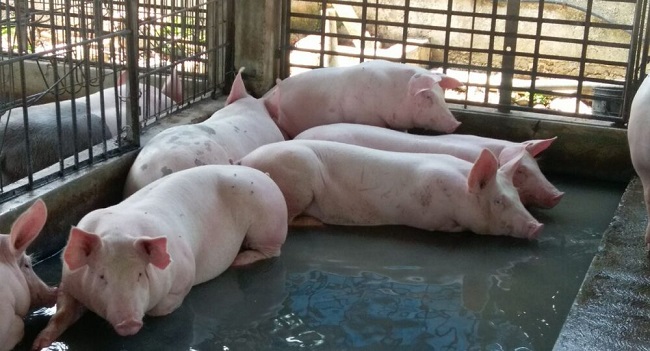Following the problem in the State due to the contamination caused by pig farms, the Mexican Civil Council for Sustainable Forestry (Ccmss) held the “University Seminar on Society, Environment and Institutions”, in which it highlighted the socio-ecological impact of this industry, as well as the conflicts arising from the communities’ rejection of mega pig farms, such as those operated by Grupo Porcícola Mexicano (GPM), with the Kekén brand.
Yaneli Aguilar pointed out that Yucatán used to be characterized as an area with karst soils, which has become a risk for the water table, as it is the focus of the expansion of the pork industry due to its strategic location and the amount of resources it still has, such as water.
“According to a study conducted by Greenpeace, in Yucatan there are 257 pig farms, 47 percent of which are located in priority areas for the conservation of biodiversity distributed in an area with porous soils, which have a high porosity that allows downward transport of liquid waste.”
“This leads to major environmental impacts to aquifers, including cenotes, which are very important for the Mayan community, and also contributes to deforestation and loss of biodiversity and damage to the ecosystem,” she said.
She emphasized that this mega-industry of pork production is causing more and more problems in the communities, due to the generation of large quantities of wastewater that have a high organic load and as it is easy for them to access the water (cenotes) they are sites of high vulnerability.

“A pig produces four times more waste than a human being and although they want to tell us that this industry is sustainable, it is really a myth, they are extractivist projects,” she said.
“They create an illusion by talking about a farm where there are animals roaming free when it is not like that, the animals are confined and are being bombarded with hormones and medicines in the food so that their life cycle is faster and they can be exported,” she said.
She indicated that due to the volume of wastewater handled by the mega-farms, there is no system that can support it. “It is a lie that there is a system that can support it, less in karstic zones with soils of five of 10 cm or 20 centimeters, this is extremely stony and less if our soil is classified with conduits to the cenotes, it is practically impossible that these zones with these soils can retain and transform so many quantities of waste, less with agrochemicals,” she said.
She pointed out that among the damages caused by pig farms is the contamination of bodies of water, soil degradation due to salinization, which generates loss of native vegetation or cultivation for years, loss of biodiversity, among others.
TYT Newsroom


